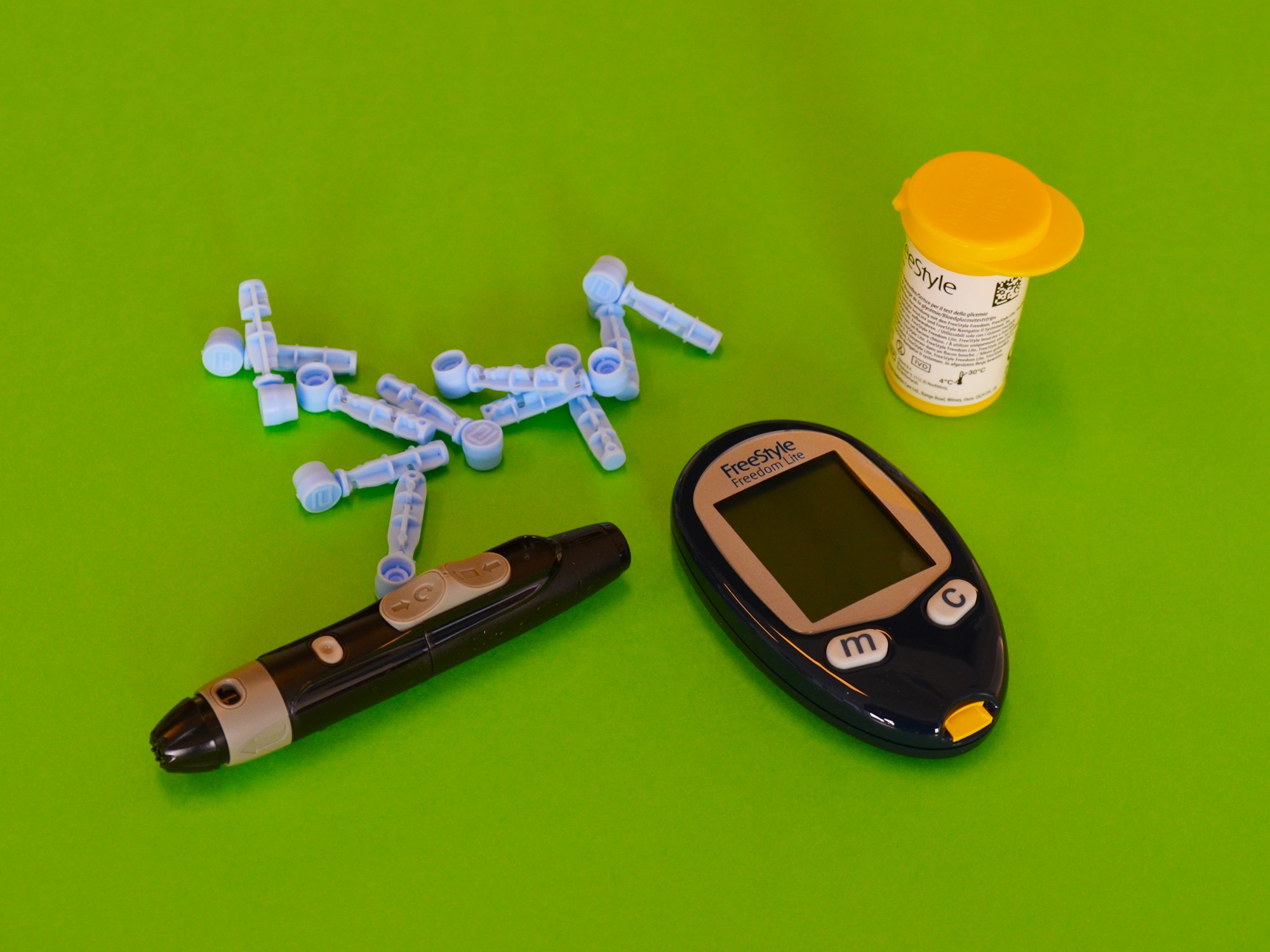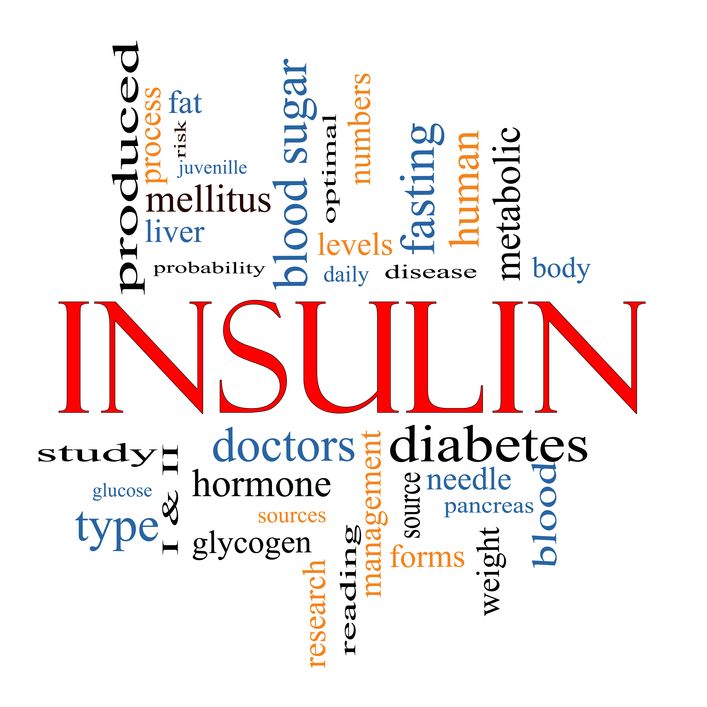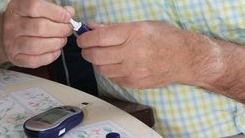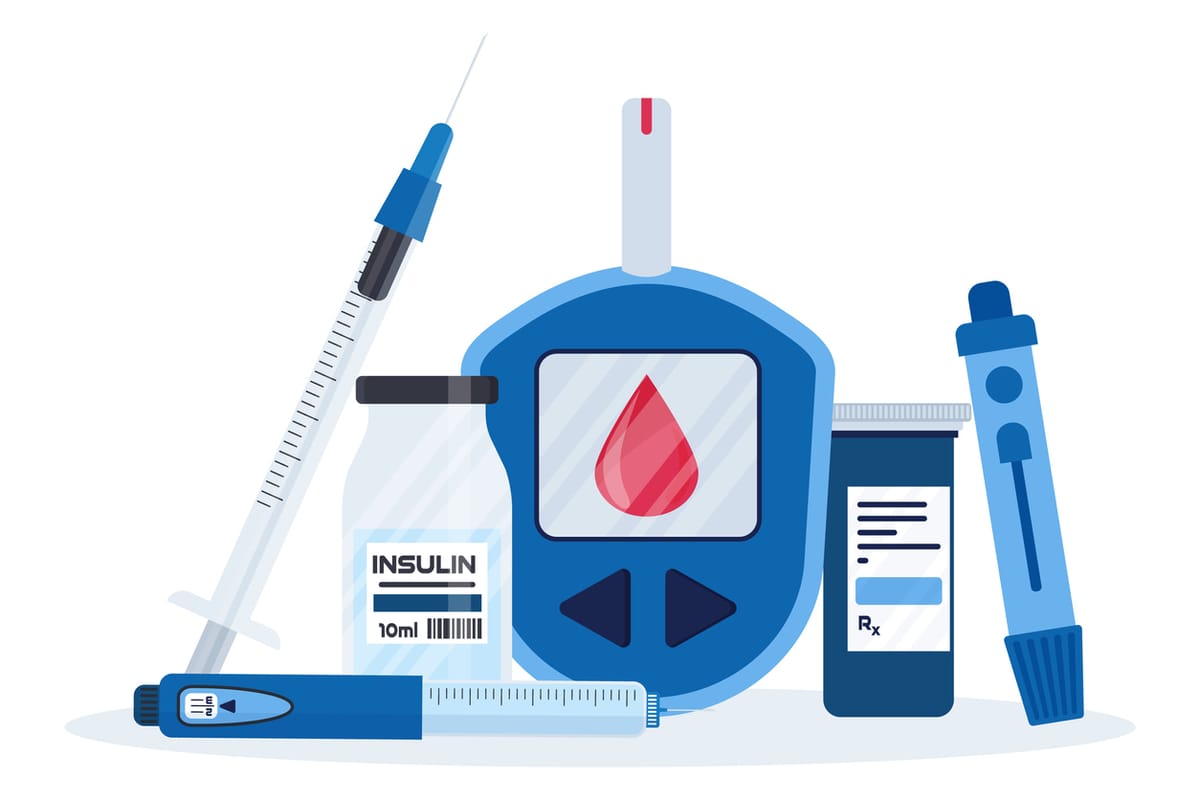Can Diabetes Cause Loss of Appetite?
"Diabetes Loss of Appetite: Can It Cause This?" explores how diabetes can affect appetite regulation. Learn about the connection between diabetes, blood sugar levels, and loss of appetite, as well as the impact of complications like gastroparesis on hunger and the importance of managing symptoms.

Diabetes cause loss of appetite
Many diabetes patients may experience a loss of appetite at some point in time and it is important to understand why this occurs and what treatments are available to combat it. Diabetes is a condition that affects the body's ability to generate or use insulin, the hormone responsible for regulating and controlling blood sugar levels. When diabetes is left untreated, the presence of glucose in the blood can cause serious complications and even loss of appetite. In this guide, we will delve into what diabetes is, the factors that can cause loss of appetite in diabetes patients, potential treatments that can help restore or maintain appetite, and dietary strategies that can be used to help with appetite loss. We will also provide some additional resources for anyone looking for more information about this subject. Through this guide, we hope to provide insight and understanding of a potentially serious complication of diabetes that can be avoided with the right treatment and care.
Diabetes is a condition where the body is unable to process glucose (sugar) correctly. This results in high blood sugar levels, which can lead to numerous medical complications. There are two main types of diabetes: type 1 diabetes and type 2 diabetes.
Type 1 diabetes is an autoimmune condition that occurs when the body's own immune system destroys the cells in the pancreas that produce insulin, resulting in an inability to produce insulin. Type 2 diabetes is a metabolic disorder that occurs when the body is unable to produce enough insulin or is unable to use it efficiently.
People living with diabetes require regular monitoring of their blood sugar levels and may need to take medications and/or adjust their diet and exercise regimen to manage their condition. Diabetes can cause a range of complications, including an increased risk of developing heart disease, stroke, kidney disease, nerve damage, and vision problems.
The prolonged, elevated blood sugar levels can cause a variety of symptoms, including frequent urination, extreme thirst, fatigue, and weight loss. It can also lead to loss of appetite in some cases. It's important for people living with diabetes to be aware of how their condition can affect their appetite, as this can have serious implications if not addressed.
Understanding Loss of Appetite
Loss of appetite, also known as decreased appetite or anorexia, is a common symptom that can arise from various factors, including medical conditions, medications, and psychological influences. It is characterized by a reduced desire to eat food, which can lead to inadequate nutrition and subsequent weight loss. Understanding the underlying causes of loss of appetite is crucial for developing effective treatment strategies. Whether it’s due to an illness, side effects of medication, or emotional stress, addressing the root cause can help restore a healthy appetite and ensure proper nutrition.
Symptoms of Diabetes
When someone is diagnosed with diabetes, it can be a scary experience. Knowing the symptoms of diabetes is an important first step in managing this condition and taking the steps to maintain a healthy lifestyle.
Unexplained weight loss can be a symptom of diabetes. Changes in body weight can significantly impact overall health and the management of diabetes, often requiring medical intervention.
The two main types of diabetes are type 1 diabetes and type 2 diabetes. Type 1 diabetes is an autoimmune disorder, which means the body’s immune system attacks and destroys the cells in the pancreas responsible for producing insulin. Type 2 diabetes is caused by a combination of lifestyle factors, such as poor diet and lack of exercise, and genetics.
The most common symptoms of diabetes include:
- Frequent urination
- Excessive thirst
- Unusual fatigue
- Unexplained weight loss
- Blurred vision
- Slow healing sores or cuts
- Loss of appetite
- Abdominal pain
If you experience any of these symptoms, it is important to consult your doctor as soon as possible for a diagnosis. Loss of appetite is particularly concerning, as it can lead to serious nutritional deficiencies if not addressed.
It is important to note that symptoms for type 1 diabetes usually appear more quickly and severely than those of type 2 diabetes, which may have few or no noticeable signs. It is also important to remember that symptoms of diabetes may not always be evident, so regular check-ups are important even if you do not experience any of the above symptoms.
Diabetes is a serious chronic condition that affects an individual’s ability to break down and absorb nutrients from food. In turn, this can lead to extreme hunger or sometimes, complete loss of appetite. There are many potential causes for the loss of appetite in diabetics, both medical and non-medical. This section of the guide will discuss the various factors that could be contributing to loss of appetite in diabetics.
Diabetes and Loss of Appetite
Diabetes is a chronic condition that affects the body’s ability to regulate blood sugar levels. While diabetes itself does not directly cause loss of appetite, certain diabetes-related complications can lead to decreased appetite. For instance, gastroparesis, a condition where the stomach takes too long to empty its contents, is a common complication in diabetes that can result in a reduced desire to eat. Additionally, some medications used to treat diabetes, such as metformin, can cause gastrointestinal side effects, including loss of appetite. It is essential for individuals with diabetes to manage their blood glucose levels and seek medical attention if they experience persistent loss of appetite, as this can impact their overall health and diabetes management.
Eating Habits and Diabetes
Eating habits play a crucial role in managing diabetes. A healthy diet that includes whole foods, fruits, vegetables, and whole grains can help regulate blood sugar levels and prevent complications. Individuals with diabetes should aim to eat regular, balanced meals to maintain stable blood glucose levels. However, some people with diabetes may experience disordered eating behaviors, such as restrictive eating or binge eating, which can negatively impact their diabetes management. Establishing consistent eating habits and focusing on nutrient-dense foods can support better blood sugar control and overall health.
Disordered Eating and Diabetes
Disordered eating behaviors, such as anorexia nervosa, bulimia nervosa, and binge eating disorder, are unfortunately common among individuals with diabetes. These behaviors can lead to poor glycemic control, weight gain or loss, and an increased risk of complications. It is essential for healthcare providers to screen for disordered eating behaviors in individuals with diabetes and provide appropriate treatment and support. Addressing these behaviors through therapy and nutritional counseling can help improve diabetes management and overall well-being.
Managing Loss of Appetite with Diabetes
Managing loss of appetite with diabetes requires a comprehensive approach that involves medical, nutritional, and psychological interventions. Individuals with diabetes who experience loss of appetite should consult with their healthcare provider to rule out underlying medical conditions. A registered dietitian can help develop a personalized meal plan that takes into account the individual’s nutritional needs and food preferences. Additionally, cognitive-behavioral therapy (CBT) and other forms of talk therapy can help individuals with diabetes address underlying psychological factors that may be contributing to their loss of appetite. By combining these strategies, individuals with diabetes can work towards restoring their appetite and maintaining their overall health.
Medical Causes:
There are several medical causes of loss of appetite that may be associated with diabetes. The most common causes include:
- Endocrine disorders – diseases such as hypothyroidism, adrenal insufficiency, and pituitary dysfunction can all affect appetite.
- Medication side effects – Diabetes medication, insulin therapy, and other related medications can cause side effects including loss of appetite.
- Insulin resistance – In some cases, when the body becomes resistant to insulin, it can lead to decreased appetite.
- Gastrointestinal problems – Chronic stomach pain, bloating, or gas can all contribute to a decreased desire to eat by affecting the digestive system.
- Dehydration – Dehydration can lead to a loss of appetite, especially in diabetics.
Non-Medical Causes:
In addition to medical causes, there are also non-medical causes for loss of appetite in diabetics. These include:
- Poor diet – Eating too much processed or sugary food can lead to an aversion to healthy food.
- Food allergies – Many diabetics are sensitive to certain foods, which can cause nausea or other gastrointestinal issues.
- Mental health issues – Depression, anxiety, and stress can all lead to a decreased appetite.
- Eating disorders – Conditions such as binge eating and insulin omission can significantly impact appetite and complicate diabetes management.
- Lack of motivation – In some cases, diabetics may not feel motivated to eat due to fatigue or a lack of interest in food.
It is important to note that the causes of loss of appetite in diabetics can vary from individual to individual. It is important to consult with a doctor if you are experiencing a decrease in appetite and think it might be related to your diabetes.
Diabetes is a serious health condition, and managing it requires a comprehensive understanding of all the symptoms and treatment options available. One of the common symptoms associated with diabetes is loss of appetite, which can leave diabetes patients feeling weak and without enough energy to carry out their daily activities. Fortunately, there are a variety of treatments that can help restore or maintain appetite in diabetics. In this article, we will discuss the available treatments for loss of appetite in diabetics, both medically and naturally.
Medically, the most common treatments for loss of appetite in diabetics are medications. This could include stimulants like methylphenidate or amphetamines, antidepressants like bupropion, and various other medications that have been approved by the US Food and Drug Administration (FDA). However, it is important to note that not all medications work for everyone, and it’s best to consult with a doctor about which medication might be right for your specific situation. In addition, some medications can also have negative side effects, such as increased blood sugar levels, dizziness, or difficulty sleeping.
In terms of natural treatments for loss of appetite in diabetics, there are several options available. Eating smaller meals more frequently, as well as snacking on high-protein and fiber-rich snacks throughout the day can help stimulate appetite. Additionally, frequent physical activity, relaxation techniques, and even aromatherapy can help increase feelings of hunger. Herbal remedies such as ginger, turmeric, and ginseng may also have an appetite-stimulating effect. Lastly, eating a balanced diet rich in essential vitamins and minerals, as well as whole grains and lean proteins can help support overall health and boost appetite.
It’s important to note that while natural interventions can be beneficial for some individuals, it’s always best to speak to a doctor before beginning any new diet or lifestyle changes. The doctor can assess the individual’s health and provide tailored advice to ensure a safe and successful outcome.
Having a loss of appetite is a common symptom among diabetes sufferers. Although this can be a sign that blood sugar levels are being managed properly, it can also pose a problem if it causes a disruption to an individual’s dietary intake. It is important for diabetics to be aware of the potential risks associated with having an inadequate diet so they can take steps to prevent them.
There are several complications that could arise as a result of inadequate diet in diabetics. If an individual is not getting the vitamins, minerals and proteins their body needs, it can cause weak bones, fatigue, poor wound healing, infection and anemia. Poor nutrition can also lead to weight loss and malnourishment, which can affect the body’s ability to regulate blood sugar levels and require extra insulin to manage. Another issue that can occur is hypoglycemia, which can be exacerbated by a lack of food intake.
It is important for diabetes patients to consider the possible complications associated with having a poor diet in order to help maintain their overall health. Regular monitoring of blood glucose levels and appropriate dietary and lifestyle changes can help reduce the chances of any of the above mentioned issues occurring.
Loss of appetite can be a difficult issue for diabetics to cope with. Fortunately, there are certain strategies that can help diabetes sufferers combat this difficult symptom. In this section of the guide, we will discuss some dietary strategies and ideas that may help individuals who are struggling with loss of appetite due to diabetes.
It is important to remember that everyone is different, and what works for one person may not work for another. As such, it is important to speak with your doctor about finding the most suitable diet plan for you.
Here are some strategies that may help manage eating habits in diabetes:
- Eating on a regular schedule – aim to eat at least three meals per day
- Planning ahead – try to plan out meals ahead of time, so you know exactly what you’ll be eating
- Eating smaller meals – as opposed to one or two large meals, break your meals into smaller portions throughout the day
- Keeping track of food intake - create a food diary to keep track of what you’re eating
- Focusing on nutrient-dense foods – opt for nutrient-rich foods such as fresh fruit and vegetables, lean proteins, and whole grains
- Avoiding processed foods – processed foods often contain hidden sugars which can be detrimental to diabetics
- Stay hydrated – staying hydrated is key for maintaining healthy blood sugar levels and keeping the body nourished
- Getting enough rest – taking time to rest can help to restore energy levels and improve appetite overall
Medically, the most common treatments for loss of appetite in diabetics are medications. For severe cases of gastroparesis, gastric electrical stimulation may be considered. This surgical procedure involves implanting a device that delivers electrical pulses to the stomach's nerves and muscles, potentially alleviating symptoms such as nausea and vomiting.
These diet strategies are not a cure-all, but they can certainly help to reduce the impact of diabetes-related loss of appetite. Speak with your doctor to explore other dietary options available for diabetics.
Additional Resources for Diabetics to Control Blood Sugar Levels
Living with diabetes can be overwhelming, especially when it comes to managing your appetite. To help you out, here are some reliable online resources and organizations that offer support and information about diabetes and appetite loss:
- American Diabetes Association: The American Diabetes Association offers a wide range of resources tailored towards those living with diabetes. Their website includes an abundance of information about diabetes, nutrition, and coping with appetite loss.
- National Institute of Diabetes and Digestive and Kidney Diseases: Under this government-funded institute, individuals can access comprehensive educational and research materials on diabetes, including health advice, advice for healthy eating, and weight control tips.
- Juvenile Diabetes Research Foundation: This organization specifically focusses on supporting those living with type 1 diabetes. They have numerous resources available on their website aimed at helping individuals handle the various challenges associated with type 1 diabetes.
These online resources and organizations are great starting points for finding additional information and support to manage diabetes and the associated issues, such as appetite loss.
In conclusion, diabetes can cause significant changes in appetite, and it is important to take these changes seriously. While loss of appetite is a common symptom of diabetes, there are many factors that can contribute to this and the best approach is to manage it with a combination of medical and natural treatments. Additionally, quality dietary strategies should be used to ensure that you are still getting the essential nutrients needed for your health and wellbeing.
Although loss of appetite can be concerning, it is important to remember that by taking the right steps and consulting with your doctor or other health professionals, you can have an effective plan in place to help you manage your diabetes as well as your appetite. There are also a variety of additional resources available which can give you further guidance when tackling diabetes-related issues.
By taking all of these points into consideration and carefully monitoring your diabetes, you should see improvements in your overall health and wellbeing.
FAQs About Diabetes and Loss of Appetite
Diabetes is a health condition that affects people all over the world, both young and old. One of the symptoms or side effects of diabetes can be a loss of appetite, which can be both uncomfortable and dangerous for those affected. Below are some frequently asked questions about diabetes and loss of appetite.
- Can diabetes cause loss of appetite? Yes, diabetes can cause loss of appetite. This is due to various factors such as reduced energy levels, metabolic changes, or medications you may be taking. It's important to speak to your doctor if you notice changes in your appetite.
- How can I deal with loss of appetite caused by diabetes? The most important thing to do is to talk to your doctor and find out what is causing the appetite loss. If medications are causing the issues, then switching medications may be the best move. In addition, eating small, frequent meals throughout the day rather than large meals can help. Eating foods high in protein and fiber, such as nuts, beans, and fresh fruits and vegetables can help increase your appetite.
- Are there any dietary strategies to combat loss of appetite in diabetics? Yes, there are multiple strategies to help diabetics manage their appetite. Eating smaller, more frequent meals, focusing on high-fiber foods, and avoiding simple carbs like white bread and sugary drinks can all help keep your appetite up. In addition, supplements and vitamins can also help boost your appetite if you're suffering from diabetes-related anorexia.
- What kind of complications can arise from a loss of appetite associated with diabetes? A loss of appetite caused by diabetes can have serious consequences. It can lead to malnutrition, dehydration, fatigue, and damage to blood vessels and organs. It's important to speak to your doctor and develop a plan that includes adequate nutrition and regular monitorin
You might also like this article:















